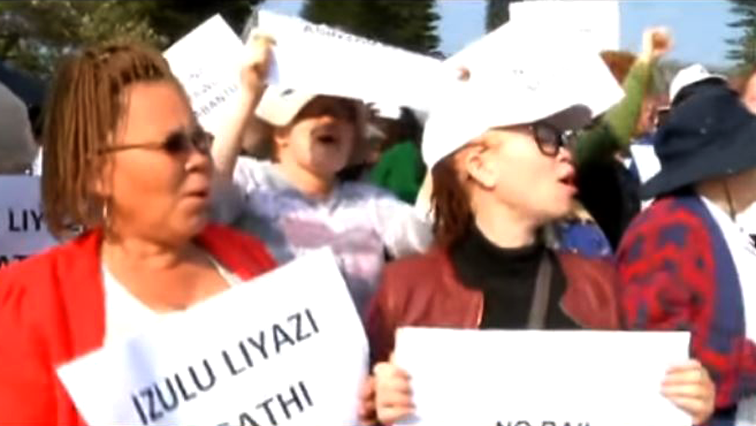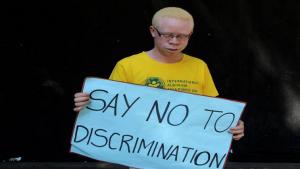Six African women with albinism who have overcome stigma, abuse, rape and machete attacks are set to scale the continent’s highest peak, Mount Kilimanjaro, to dispel the negative perceptions surrounding people with the rare skin condition.
The novice climbers aged between 26 to 35 years old and from Kenya, Tanzania, Nigeria, South Africa, Zimbabwe and Senegal said their seven-day trek up the 5 895-metre summit in Tanzania was to celebrate people with albinism.
“We are tired of being told we are incapable, cursed and cannot be part of society,” said Jane Waithera, Kenyan activist and co-founder of the “Climb for Albinism” expedition, which begins on October 1.
“So here we are, six African women with albinism who have succeeded in their lives despite the odds, who are climbing the continent’s biggest mountain to amplify the voices of people with albinism and hopefully be an inspiration to others.”
Joining Waithera are Senegalese bass player Maah Koudia Keita, Nigerian optometrist Onyinye Edi, South African actress and singer Regina Mary Ndlovu, Tanzanian entrepreneur Mariamu Staford and Zimbabwean educator Nodumo Ncomanzi.
The lack of pigmentation in the skin, hair and eyes means people with albinism are frequently shunned and attacked in Africa due to a lack of awareness about the rare genetic condition.
In some countries, they are targeted for their body parts which are prized in witchcraft for use as lucky charms or in magic potions. Women risk rape due to myths suggesting sex with a woman with albinism can cure AIDS.
Rising reports of ritual and witchcraft-related killings for body parts in countries such as Tanzania, Malawi and Burundi in recent years has prompted the United Nations to appoint a special expert to protect people with albinism.
But the ascent of Kilimanjaro is not going to be easy. As part of their training in May, the women climbed Mount Kenya which stands at 5 199 metres but two of them had to turn back.
Elia Saikaly, film-maker and co-founder of the expedition, said the women will face near sub-zero temperatures near the top of Kilimanjaro, and the extreme altitude will make it difficult to breath but all precautions had been taken.
The women are equipped with customised sunglasses and sunscreen to protect their eyes and skin. They have a team of about 50 people – doctor, porters, guides as well as film crew -who will be supporting them.
“Kilimanjaro is not a joke. It’s a very difficult mountain to climb,” said Saikaly. “But I know they are capable because they are ready and quite frankly, they have all climbed far greater mountains in their lives.”
The women will begin their ascent on October 1 and climb each day for between four to five hours. They hope to reach the summit on October 7.
“This is great and inspiring initiative from so many perspectives. Mount Kilimanjaro has been conquered by thousands of climbers, but never by a team like this,” said Marcella Favretto, senior human rights advisor at the U.N. Office of the High Commissioner for Human Rights.
“Their climb tells a story of extraordinary stamina and heroism – they have experienced stigma, exclusion and in some cases incredible cruel physical harm, yet here they are planning to undertake an expedition which is certainly not within the reach of the majority of us.”






